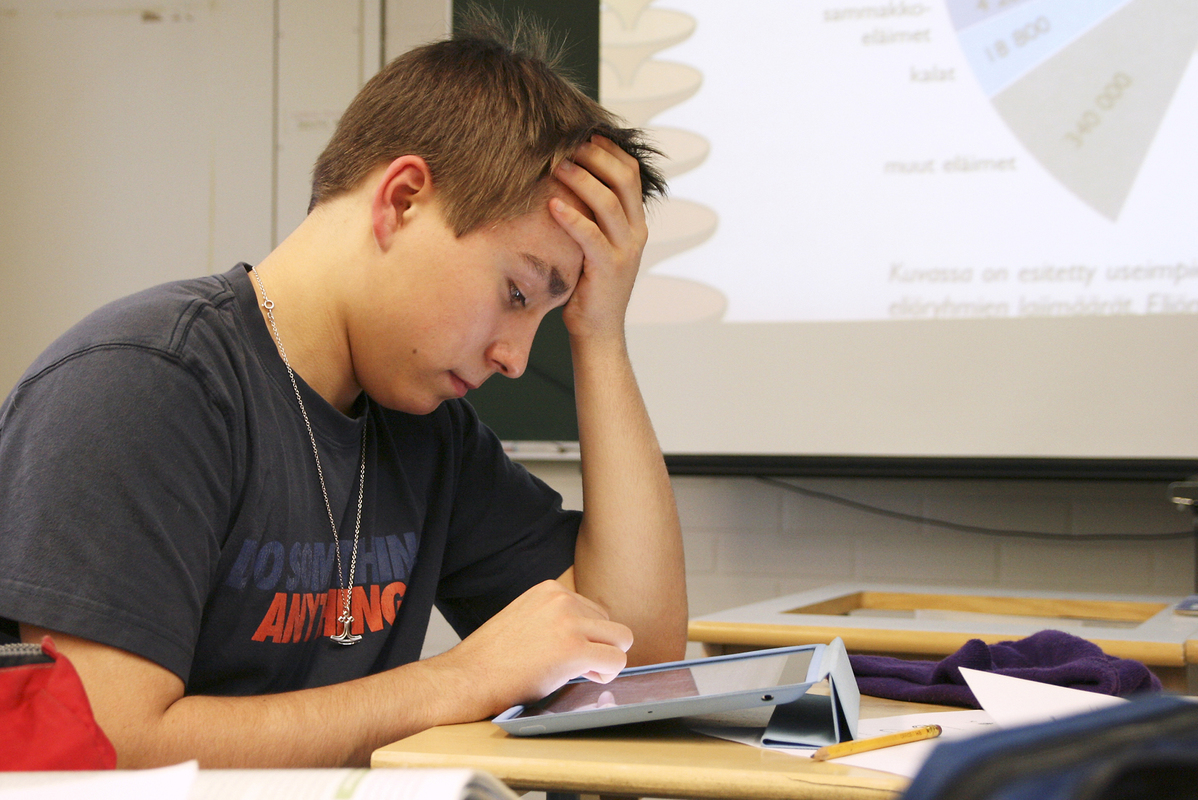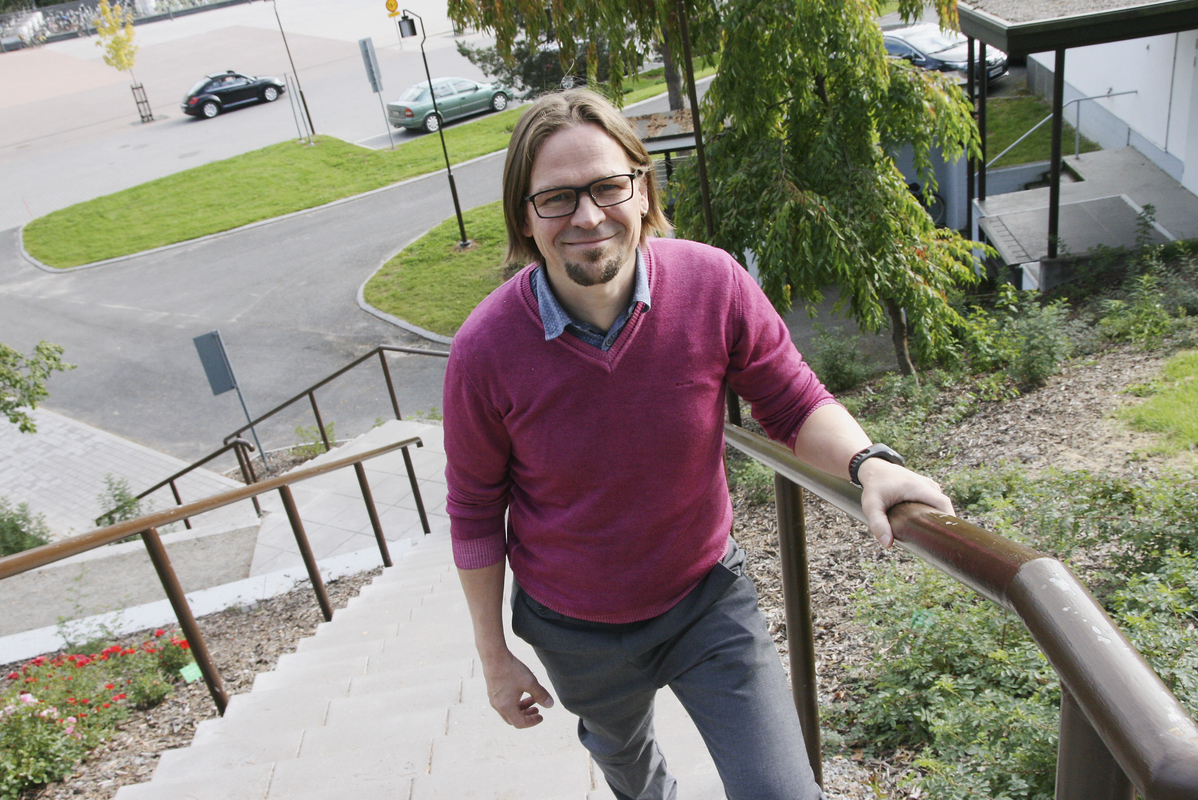Perseverance
Does perseverance substitute intelligence?
 Practice makes perfect and repetition is the mother of learning. Practice and repetition are essential elements of learning. But how is perseverance connected to student performance? Does perseverance substitute intelligence and can persistent efforts bring better results in test situations as well? Finns are known for their sisu (a combination of persistence and will-power). But are the youth perseverant and did it help them succeed in PISA assessments?
Practice makes perfect and repetition is the mother of learning. Practice and repetition are essential elements of learning. But how is perseverance connected to student performance? Does perseverance substitute intelligence and can persistent efforts bring better results in test situations as well? Finns are known for their sisu (a combination of persistence and will-power). But are the youth perseverant and did it help them succeed in PISA assessments?
Effort promotes learning
Intelligence is perhaps the most thoroughly studied and documented factor of learning. Nonetheless, various studies indicate that learning outcomes and student achievement, in particular, can be explained more largely by personal temperament and work practices than by intelligence. Underlying all learning and knowledge there is a wide range of cognitive and metacognitive processes that have a strong impact on how well different things are acquired.
Perseverance, striving, persistence and determined task accomplishment are personal qualities associated with higher performance. To some extent, these qualities can also compensate for some shortcomings of capability, and perseverance is known to be a significant promotive factor for student achievement. According to various school surveys, students with a low potential (i.e. cognitive abilities) but high perseverance do better than their peers with a high potential but low perseverance.
Perseverance and PISA findings
PISA assessments, which are organised in three-year cycles, measure 15-year-old students’ performance in mathematics, reading literacy, science and in a cycle-specific domain, which in PISA 2012 was problem solving. Besides actual tests, the students also answered background questionnaires. Some of the questions also addressed students’ perseverance and persistence in problem solving situations. The connections between these statement items and student performance were examined across different test domains and performance levels. The aggregate effect of various statement variables was estimated with a perseverance index.
Like in student performance, there are also differences in perseverance connected to it. In the light of the questionnaire data, Finnish students were not particularly perseverant, as their national average for the perseverance index was close to the OECD average. However, in Finland the connection between this index and student performance was the strongest of all participating countries. I will focus here on the domain of problem solving, in which prior knowledge might be of least importance for solving the tasks. The Finnish national average for problem solving was 523 score points, which was the ninth highest among the participating countries. In Finland the estimated effect of perseverance on student performance in this domain was 30 score points. Across the 28 OECD countries participating in the study, the average effect of perseverance was 15 score points, while the OECD average score for problem solving was 500.
However, good PISA results could be achieved also without any significant connection to perseverance. For example, the Estonian average was 511 (11th position in country ranking), whereas the estimated effect of perseverance was only one score point. The highest performing country was Singapore with the average of 562 score points, but even there the estimated effect of perseverance remained at 13 score points.
Sisu is an asset for Finns
It is known that there is no linear connection between intelligence and good results, but research on learning has confirmed that perseverance is strongly linked to good performance. There is very little previous research on national differences in the effects of perseverance, so there may well be also other factors underlying such differences. On the basis of PISA data, however, it would seem that a stronger connection between perseverance and student performance is one trait of the Finnish characteristics. In Fact, Estonian students reached higher average perseverance ratings than we Finns, but their perseverance was only minimally linked to their performance. In Finland, in contrast, of two students operating otherwise on the same level the more perseverant one usually got higher scores.As is generally known, we usually use only a fraction of our cognitive potential. Hence, we have good chances and plenty of additional capacity for successful efforts. The way to better results is paved with persistent effort, striving and perseverance. Readiness for making an effort is a valuable quality, which particularly we Finns should foster.
***
My late father-in-law used to say that "diligence is a substitute for intelligence". This proverb he had heard from his teacher when struggling with his studies at middle school. He said that keeping this motto in mind had helped him make progress in his studies and life in general. He became a doctor and docent in medicine and made a long career as a pediatrician. It is a fascinating story and, like people use to say, "at least half of it is probably true”. I am happy that I have now got a chance to explore whether the above-mentioned proverb can be verified in PISA contexts.
Arto K. Ahonen
Arto K. Ahonen works as a university researcher at the Finnish Institute for educational Research, University of Jyväskylä. He is also the National Coordinator of PISA 2018 assessment in Finland
Read more:
PISA homepage
Ministry of Education and Culture: Finland and PISA
OECD's international report on PISA 2012
Send feedback to the author: arto.k.ahonen@jyu.fi
Photos: Martti Minkkinen
Translation: Tuomo Suontausta
